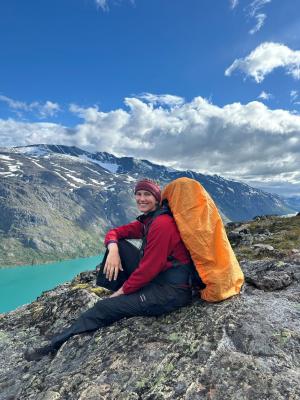Motivation
I want to work in Europe immediately or shorty after my graduation, so going on exchange to a European school was a great way to build my credentials and make valuable industry and personal connections in pursuit of that goal.
Personal Development
I was able to travel to 5 new countries during my exchange period, which I very much enjoyed. It was in a region I'd never been to, and experiencing the culture there is something I won't soon forget. I also learned the language of the country in which I want to work, which I hope will assist my during my job search.
Academic Development
I found the courses on my exchange quite challenging, especially because the way they structure their learning and the support that students receive is very different from UQ. I had to adapt the way that I studied, where I looked to when I was struggling, and what my expectations were in terms of results. I thought the workload was relatively high compared to UQ because I had to take 5 courses to meet my credit requirement - so even though I might have been doing the same amount or hours of work, it could feel like a lot to juggle that many different topics at once. Something I really enjoyed about my exchange courses is that none of them had written exams (not the case for all courses at that university, but for the courses I took), so I was able to showcase my knowledge through different types of assessment like large end-of-semester projects and presentations.
Funding
I budgeted about $6500 for my exchange, where the breakdown was (roughly):
Rent: $500/month
Transportation: $340/month
Food: $400/month
Phone: $40/month
Exercise/leisure: $70/month
Visa cost: $550 once-off
My original budget did not include travel expenses, which I planned for separately. I already happened to be in the area for another international experience, but I paid about $2000 for the flight there and slightly over $2000 for the flight back. I did not keep track of my leisure traveling costs, but I would estimate it cost roughly $2500.
When planning travel during your exchange I would recommend looking into the cheapest options for getting around in your local area, as they can be very different from Australia. In Europe for example I took the train or night bus to almost all of my destinations, which saves lots of money especially since you don't need to pay extra for luggage. Additionally, staying in hostels if it is safe and possible for you to do so is a great way to save, compounded by the possibility to cook your own meals. I highly recommend eating some meals out to experience the local food culture, but not every meal needs to be that way - just eating breakfast at your hostel/hotel can easily save $20-$30 a day.
Highlight
I have many family and friends in Europe, so it was really nice to get to see them more often than I'm able to in Australia. I also enjoyed travelling to new cities and countries, and getting to experience the educational system in another country.
Top Tips
It is important to travel and take advantage of the cultural exchange aspect of the experience, but don't forget to pay attention to your academics as well! It's easy to let it slip to the side, especially when there's no impact on your GPA, but it's easy to fail classes if you don't pay close enough attention to assessment requirements, due-dates, and compulsory-attendance classes.

